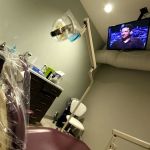How to Choose the Best Dental Air Compressor for Your Practice
- 1. Why Choosing the Right Dental Air Compressor is Crucial
- 2. Types of Dental Air Compressors and Their Benefits
- 3. Key Factors to Consider When Selecting a Dental Air Compressor
- 4. Maintenance Tips for Longevity and Efficiency
- 5. Top Picks for the Best Dental Air Compressors
1. Why Choosing the Right Dental Air Compressor is Crucial
When setting up or upgrading a dental practice, one of the most important pieces of equipment to consider is the dental air compressor. This tool is crucial for maintaining the power and efficiency of dental instruments, ensuring patient safety, and providing a smooth, hassle-free operation. The right air compressor can make a significant difference in the performance and reliability of your dental equipment. In this article, we'll guide you through everything you need to know to choose the best dental air compressor for your needs.
Choosing the right air compressor is not only about selecting a product with the most features but also one that fits the specific needs of your practice. From providing consistent air pressure for your instruments to ensuring that the compressor runs quietly and efficiently, the right model will ultimately improve the patient experience and help your practice run more smoothly.
2. Types of Dental Air Compressors and Their Benefits
There are several types of dental air compressors available in the market, and understanding their features and benefits is key to making an informed decision. Below are the most common types:
Oil-Free Compressors
Oil-free compressors are popular for their ease of maintenance and clean air supply. These compressors don’t use oil, which eliminates the risk of oil contamination in your dental instruments. This makes them ideal for environments where high-quality, clean air is essential for patient safety and the longevity of dental tools.
Oil-Lubricated Compressors
While oil-lubricated compressors typically have a longer lifespan and higher efficiency, they do require more maintenance. These compressors use oil to lubricate the moving parts, which helps reduce friction and wear. However, it's important to ensure that the oil doesn’t contaminate the air supply, which may require installing filtration systems.
Scroll Compressors
Scroll compressors are known for being quieter and more energy-efficient. These units provide a consistent and smooth air supply, making them ideal for practices where noise reduction is a priority. Additionally, they are more compact and easier to install than traditional reciprocating compressors.
3. Key Factors to Consider When Selecting a Dental Air Compressor
When choosing a dental air compressor, several important factors should guide your decision to ensure you pick the best one for your needs:
1. Air Quality
Air quality is critical in any dental practice. The compressor should provide clean, dry, and consistent air to prevent contamination of dental tools. Look for models with efficient filtration systems to remove moisture and contaminants from the air.
2. Capacity and Flow Rate
Choosing a compressor with the right air capacity and flow rate is essential. If your practice handles multiple dental procedures simultaneously, you’ll need a unit that can supply enough compressed air without running out of power or pressure. Make sure the unit has sufficient capacity to meet your daily needs.
3. Noise Levels
While compressors can be noisy, newer models have been designed to operate more quietly. If noise is a concern in your practice, look for a quiet model that minimizes disruption during patient procedures and improves overall comfort in the dental office.
4. Maintenance Requirements
Depending on the type of compressor, maintenance requirements can vary. Oil-free models generally require less maintenance than oil-lubricated models. Always check the maintenance guidelines for your chosen compressor and ensure that you have the proper tools and knowledge to maintain the unit effectively.
4. Maintenance Tips for Longevity and Efficiency
Proper maintenance is crucial for the longevity and efficiency of your dental air compressor. Here are some key maintenance tips to keep your unit running smoothly:
Regular Filter Changes
Whether you have an oil-free or oil-lubricated compressor, changing the filters regularly is essential to maintaining clean air and avoiding clogging or malfunction. Check the manufacturer’s guidelines for recommended filter change intervals.
Drain the Tank Periodically
Condensation can build up in the compressor’s tank, especially in humid environments. Make sure to drain the tank regularly to prevent rusting and damage to the unit. This helps ensure the longevity of the compressor and prevents any moisture from contaminating the air supply.
Check the Pressure and Lubrication
For oil-lubricated compressors, it’s essential to monitor oil levels and keep them topped up to prevent excessive wear. Also, check the air pressure periodically to ensure it remains consistent and within the optimal range for your dental tools.
5. Top Picks for the Best Dental Air Compressors
Here are some of the top-rated dental air compressors, based on performance, reliability, and user reviews:
1. Model A – The Best for Large Practices
This oil-free compressor provides consistent air flow and is ideal for large dental practices with multiple units running simultaneously. With low noise levels and a robust filtration system, it ensures a clean, efficient air supply.
2. Model B – Ideal for Smaller Practices
If you're looking for a compact yet powerful compressor for a smaller dental practice, Model B is the right choice. It’s oil-lubricated and offers reliable performance with a higher efficiency rate than most other models in its class.
3. Model C – The Quiet Choice
For those who prioritize noise reduction, Model C is a standout. Its scroll compressor technology ensures quieter operation without compromising on air supply quality. Perfect for offices that aim to provide a quieter, more comfortable environment for patients.
If you’re looking for a top-quality dental air compressor, these models are a great place to start your search. To learn more about the best dental equipment for your practice, visit Dentistry Toothtruth for expert advice and product recommendations.
SEO Title: How to Choose the Best Dental Air Compressor for Your Practice
SEO Keywords: best dental air compressor, dental air compressor guide, choose dental compressor, air compressor for dental office
SEO Description: Learn how to choose the best dental air compressor for your practice. Get insights into key factors, types, and top models that ensure efficiency and air quality in your dental office.







 Dr. Victor L. Gregory Jr. Family & Cosmetic Dentistry5.0 (88 review)
Dr. Victor L. Gregory Jr. Family & Cosmetic Dentistry5.0 (88 review) 21st Street Dental Group4.0 (202 review)
21st Street Dental Group4.0 (202 review) Upper Merion Dental Associates4.0 (329 review)
Upper Merion Dental Associates4.0 (329 review) Mind Your Mouth4.0 (173 review)
Mind Your Mouth4.0 (173 review) Portland Pearl Orthodontics4.0 (65 review)
Portland Pearl Orthodontics4.0 (65 review) Webster Dental Care4.0 (421 review)
Webster Dental Care4.0 (421 review) The Importance of Oral Health Education During Pregnancy for a Healthy Pregnancy
The Importance of Oral Health Education During Pregnancy for a Healthy Pregnancy Best Tips for Brushing Your Teeth Properly for Healthy Gums: Essential Techniques for Oral Health
Best Tips for Brushing Your Teeth Properly for Healthy Gums: Essential Techniques for Oral Health Why Skipping Dental Checkups Can Lead to Bigger Oral Health Problems
Why Skipping Dental Checkups Can Lead to Bigger Oral Health Problems Advantages of Porcelain Dental Restorations
Advantages of Porcelain Dental Restorations How Can Diabetes Cause Tooth and Gum Problems? Preventing and Managing Oral Health Issues
How Can Diabetes Cause Tooth and Gum Problems? Preventing and Managing Oral Health Issues Healthy Habits for Promoting Good Oral Health and Hygiene: Tips for a Healthy Smile
Healthy Habits for Promoting Good Oral Health and Hygiene: Tips for a Healthy Smile